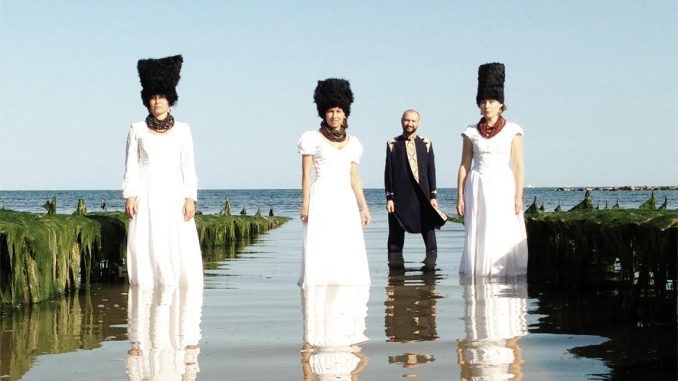
Since forming more than 15 years ago, Ukrainian avant-folk group DhakaBrakha has served as cultural ambassadors for that country. The band was born in Kyiv’s Dakh Contemporary Arts Center, a world-renown experimental theater, and its three female members (Olena Tsybulska, Iryna Kovalenko, Nina Garenetska) are ethnomusicologists who—in more peaceful times—travel their country in search of songs which they present in a singular style, incorporating influences from around the world.
The band’s mission elevated in importance and urgency with the February invasion of Ukraine by Russian forces. While some artists and musicians have taken up arms to defend their homeland, DhakaBrakha is on the road to raise awareness and support for the effort. In advance of the group’s upcoming show in Chico (Sept. 28, 7:30 p.m., at Laxson Auditorium), Marko Halanevych—who, like all four members of the band, sings and plays multiple instruments to create minimalist-yet-lush experimental music—spoke to the CN&R via email recently.
CN&R: How have members of the band been personally affected by the invasion?
Halanevych: War is a catastrophe and a huge tragedy that we are all experiencing now and have been living with for six months. Now we are safe, we keep on performing all over the world, but not all our friends and relatives are in such a situation. Every morning begins with the news, we look at the places another Russian missile hit, how many people were injured and where exactly. In the same way during the day, we follow everything that is happening in our country. We go to bed watching the news, reading analytics, reviews of the operational situation at the front. All our thoughts are with our country. Yes, we understand that this is an unhealthy situation, it is life in constant stress, but our tension is nothing compared to what the Ukrainians who remained on their land, especially in the occupied territory, are going through.
Since the beginning of the full-scale Russian invasion, we have not created a single composition. We have no inspiration and, frankly, no time, because we have chosen for ourselves the path of the maximum number of concerts around the world. We have chosen such a front of work in which we can be most effective.
Has anyone in the band become directly involved in the defense effort?
No, the whole band is performing, nobody’s fighting. And we live with a “survivor’s complex.” At least I, as a man, feel quite confused about this. Many of our fellow musicians, artists, have taken up arms and risk their lives every day for the freedom of their children and their country. Some of them have already given their lives. My cousin died in the war, Nina’s own brother was wounded and is in a military hospital. Of course, we are indebted to our real defenders. Everyone around tells us that DakhaBrakha is doing an extremely important and necessary work. We are aware of this in a certain way and continue working. But history is created precisely in Ukraine on the shoulders of men and women who took up arms and are ready to die for the sake of the country, preserving freedoms and democracy. And we will win thanks to them.
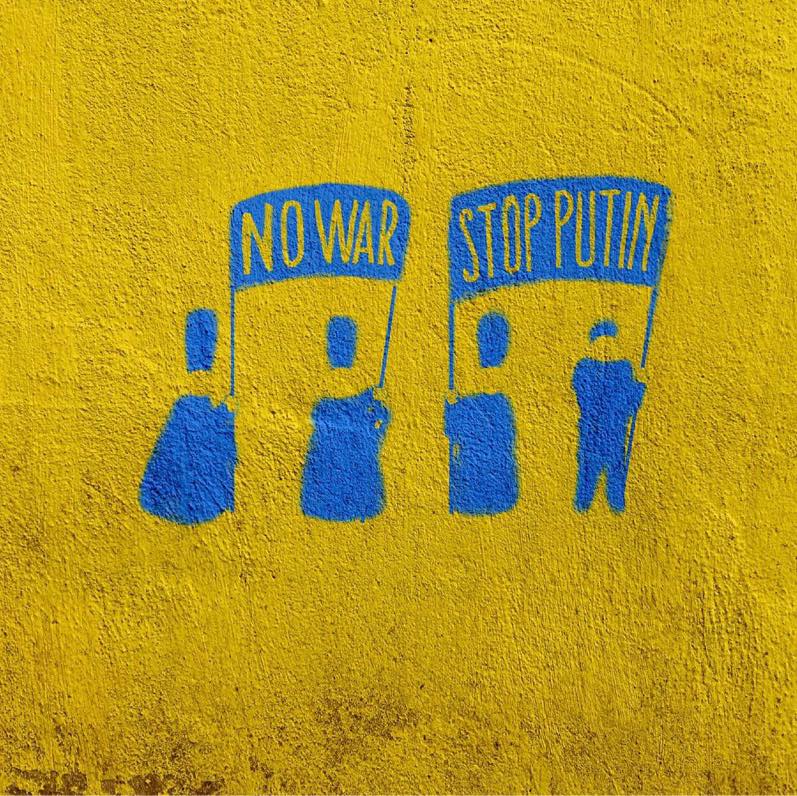
In previous interviews, you’ve spoken about how the Revolution of Dignity in 2014 had a profound effect on modern Ukrainian music and arts. How are the arts surviving during wartime, and what effect is war having?
In a way, this war is a continuation of that revolution. They want to deprive us of our dignity and the right to choose our future. Such events cannot fail to leave their mark on culture. However, it is too early to model and predict something now. No one knows how long the war will last, at what price our victory will be. We have no doubts about it, since courage and motivation cannot be borrowed from Ukrainians. But there are problems with weapons. The Russians are still many times superior to us in all types of weapons. Therefore, the support of the civilized world is essential.
As for culture, even now there is a whole layer of music that was born during the war. From suggestive reflections to inspiring winning compositions.
Was the band able to leave Ukraine with all of its equipment and costumes, or have you had to acquire new equipment for the upcoming tour?
We were able to take everything out. In the first days of the war, it was very difficult, but in a couple of weeks it was no longer so dangerous, especially in Kyiv. We would like to thank our art manager Iryna Gorban, who was the last of us to leave Ukraine and was able to solve this issue.
Is it an intentional goal of the tour to raise money and/or awareness about the current war? How is this accomplished, and is the band working with any particular agencies or groups to help this effort?
Yes, both of these tasks are important for us. We have many acquaintances and friends who have become volunteers. Each of them chose their own piece of work and their personal scope. And the results achieved by our volunteers are simply fantastic.
Recently, for example, one of the largest foundations (Serhiy Prytula Foundation, who, by the way, is a former comedian himself, like our president) bought a space satellite for the Ukrainian army. We are proud to have also contributed a little to this project.
As for the informative component, it is also very important for us. This, of course, is not about news from the front. We try to influence the viewer emotionally and sensually. In this post-war program, we use a series of videos in which we use the artistic reflections of Ukrainian illustrators: Serhiy Maidukov, Andriy Yermolenko and Marisa Rudska, as well as photographs by the photographer Oleksandr Gliadielov. Yes, we need the empathy of the audience, we need understanding and support from the people and from the governments of the countries where we perform.
When you tour America, do large numbers of Ukrainians tend to come out to see the band? How is the interaction between the band and Ukrainian diaspora? Do audience members from Russia and other former Soviet republics also regularly attend?
It seems to us that during the war there were significantly more Ukrainians at our concerts. Maybe because there are actually more of them abroad. Relations with the diaspora are excellent, we have good friends among them, although it was not often that we were involved in projects organized by the Ukrainian diaspora.

We know that Russians and other people from the Soviet Union are attending our concerts, but those who do not support the war. Those who support will be uncomfortable at our concerts.
How is the band’s theatrical/performance art background incorporated into the touring show?
We were created in the DAKH theater by director Vlad Troitskyi. And we started making music for theater productions. Later, we tried to play independently, but we did not break the connection with the theater and Vlad himself. We often make music together, or just consult, as his opinion remains quite important to us. His theatrical vision strongly influenced our perception of music, art and actually our perception of the world. Also, together with Vlad and our video artist, we created a video series accompanying our concerts today.
I understand the rest of the band are all ethnomusicologists. Are they able to keep up this work?
Unfortunately, the girls have been unable to do scientific work for a long time. DakhaBrakha takes all the time, attention and energy. It seems to me that at the moment, th3 girls are already much more artists than musicians. We have a large number of invitations all over the world, our creativity is understood and empathized with. Our audience is extraordinary. We could consider ourselves quite happy people if there was no war.
Chico Performances presents DakhaBrakha Wednesday, Sept. 28, 7:30 p.m., at Laxson Auditorium.
Tickets: $40 (available at University Box Office, 530-898-6333).

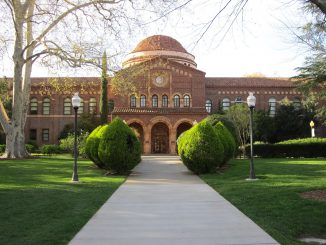
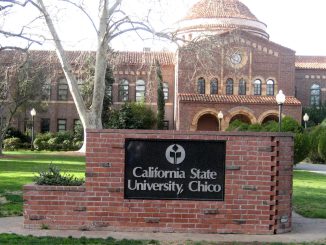
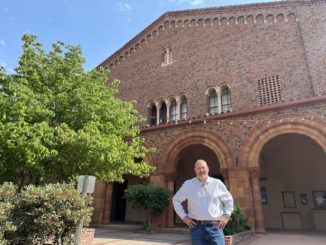
Be the first to comment